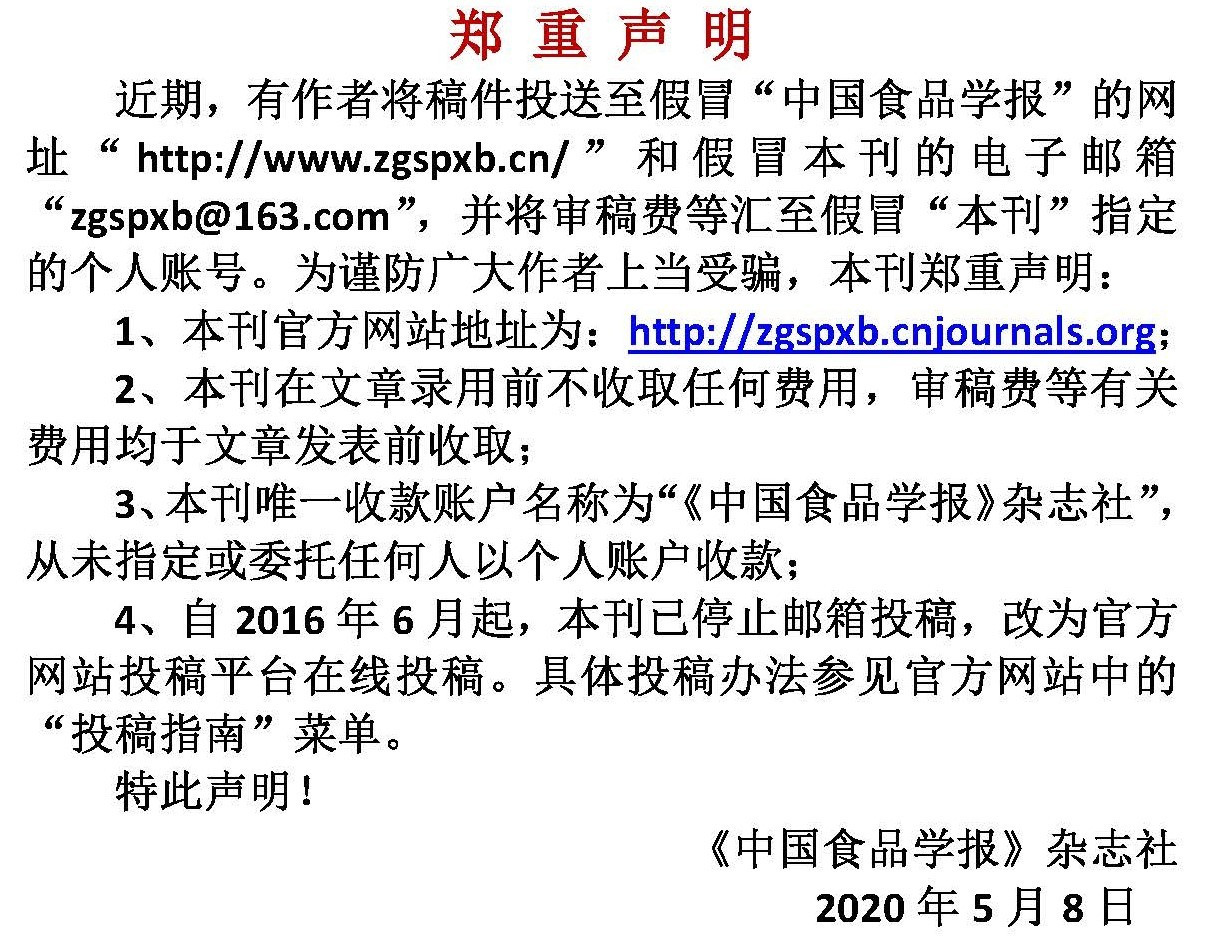萌发处理对藜麦分离蛋白结构和功能特性的影响
作者:
作者单位:
(西北农林科技大学食品科学与工程学院 陕西杨凌 712100)
作者简介:
通讯作者:
中图分类号:
基金项目:
陕西省重点研发计划项目(2021NY-125)
Effects of Germination Treatment on the Structural and Functional Properties of Quinoa Protein Isolate
Author:
Affiliation:
(College of Food Science and Engineering, Northwest Agriculture and Forestry University, Yangling 712100, Shaanxi)
Fund Project:
引用本文
蔡硕,靳高阳,顾瑞娟,王玉堂.萌发处理对藜麦分离蛋白结构和功能特性的影响[J].中国食品学报,2023,23(5):11-20
复制分享
文章指标
- 点击次数:
- 下载次数:
- HTML阅读次数:
历史
- 收稿日期:2022-05-02
- 最后修改日期:
- 录用日期:
- 在线发布日期: 2023-06-25
- 出版日期:
文章二维码

版权所有 :《中国食品学报》杂志社 京ICP备09084417号-4
地址 :北京市海淀区阜成路北三街8号9层 邮政编码 :100048
电话 :010-65223596 65265375 电子邮箱 :chinaspxb@vip.163.com
技术支持:北京勤云科技发展有限公司
地址 :北京市海淀区阜成路北三街8号9层 邮政编码 :100048
电话 :010-65223596 65265375 电子邮箱 :chinaspxb@vip.163.com
技术支持:北京勤云科技发展有限公司
